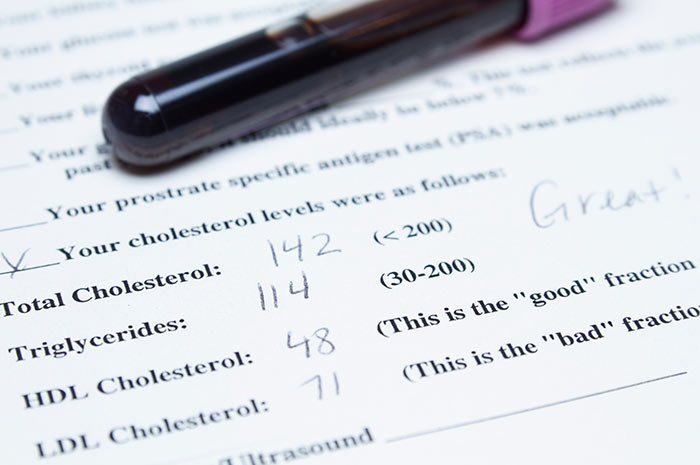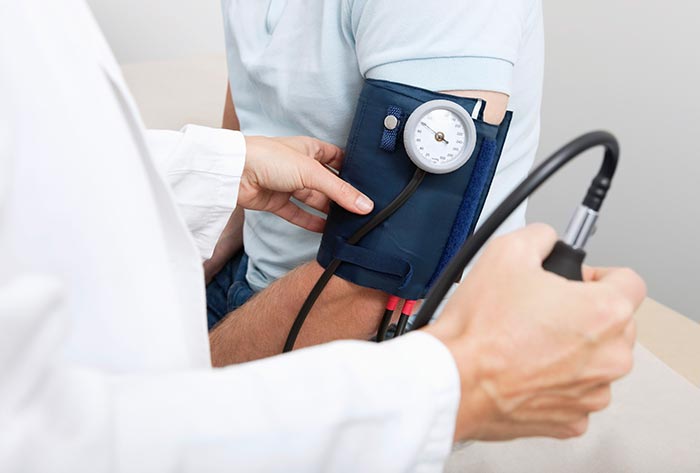How Long Between Blood Draws
It's not uncommon for your doctor to recommend blood tests from time to time. However, some people aren't clear on what these tests actually entail.
The tests that your doctor orders will likely depend on several factors, including:
- Age
- Medical history
- Family history
- Lifestyle
If you have concerns about your health and would like to talk with a doctor about blood tests, CareNow® urgent care is a great choice.
Open seven days a week and available on a walk-in basis, CareNow offers over 50 different medical tests and exams for patients over 3 months old.
Some lab tests, such as a complete blood count, can be performed on-site for quick diagnosis and treatment.
Find a CareNow® Urgent Care near you
Web Check-In®
How Often Should You Have Blood Work Done?

Your doctor will recommend which blood tests you should have and how often.
Generally, if your cholesterol is normal, you can repeat this test every five years. However, you should be tested annually if you have unhealthy levels or if you have a family history of heart disease or high cholesterol.
During your 20s, you should get your blood sugar checked and be tested for HIV. Your doctor will recommend how often you should have these tests repeated.
What Is a Complete Blood Count?

If your doctor has ordered a complete blood count, he or she is requesting a test that measures the cells that make up your blood. This includes:
- Red blood cells, which carry oxygen
- White blood cells, which fight infection
- Hemoglobin, the oxygen-carrying protein in red blood cells
- Hematocrit, the ratio of red blood cells to the total volume of blood
- Platelets, which help with blood clotting
This test is used to check for anemia, to monitor an existing blood condition, to see how medications are working, to diagnose health issues or as part of a routine checkup.
What Does a Blood Test Show?

A routine blood test will show if your blood levels fall within a normal range. If your levels fall outside the normal range, it could be because of a disorder or disease.
Other factors that can affect blood levels include:
- Physical activity level
- Alcohol intake
- Medications
Getting routine blood work is essential for diagnosing a number of diseases and conditions, as well as checking blood glucose and cholesterol levels.
Although some diseases and medical problems can't be diagnosed via blood work, knowing your numbers can help you and your doctor learn more about your health.
Normal Blood Count Levels

When you get your complete blood test done, your doctor will check to make sure your levels are within a healthy range.
These numbers vary for men and women. The following blood count levels are considered healthy:
- Red blood cell count: 4.35-5.65 trillion cells/liter (L) for men and 3.92-5.13 trillion cells/L for women
- White blood cell count: 3.4-9.6 billion cells/L (for men and women)
- Hemoglobin: 2–16.6 grams/deciliter (dL) for men and 11.6–15 grams/dL for women
- Hematocrit: 38.3–48.6 percent for men and 35.5–44.9 percent for women
- Platelet count: 135–317 billion/L for men and 157–371 billion/L for women
White Blood Cell Count Range

While the number of white blood cells can vary, the normal range is typically between 4,000 and 11,000 per microliter (mcL) of blood.
If you are showing a total white blood count of less than 4,000 per mcL, it could be a sign that your body isn't able to fight off infection the way it should. When someone has a low white blood cell count, it is called leukopenia.
Do You Have to Fast Before a Blood Test?
Determining whether you need to fast before a blood test depends on the type of blood test that you are having.
Tests for blood glucose, blood cholesterol, gamma-glutamyl transferase and iron all require you to fast beforehand.
There is a chance that you may also be asked to fast for a basic or comprehensive metabolic test, renal function panel and vitamin B12 test.
Blood Tests Every Woman Should Have
Healthcare providers recommend that women have specific blood tests to monitor their health. Here are some of these crucial tests:
- Cholesterol and triglyceride levels
- Thyroid check
- Screenings for sexually transmitted infections and diseases
- Blood sugar level
- Vitamin D level
Can A Blood Test Detect Cancer?

If your doctor suspects that you may have cancer, he or she will likely recommend certain blood tests or other lab work that can help provide a proper diagnosis.
While it is difficult for blood tests to completely determine whether cancer or another noncancerous condition is present (with the exception of blood cancers), these tests can offer some guidance.
Common blood tests used to diagnose cancer include complete blood count, blood protein testing, tumor marker tests and circulating tumor cell tests.
Can A Regular Blood Test Detect HIV?
A common misconception regarding routine blood work is that it automatically includes a test for HIV. This is not the case.
Medical professionals are encouraged to routinely offer HIV testing to patients who live in areas where the disease is a common medical problem and to those whose lifestyles put them at a heightened risk of HIV.
Recommended Annual Blood Tests
During an annual physical exam, your doctor may order a complete blood count test and
A complete blood count test can reveal early signs of many disorders such as anemia, which can cause you to feel tired and listless.
A basic metabolic profile tests a number of elements in your blood, including:
- Blood sugar (or glucose)
- Calcium
- Electrolytes
- Creatine
- Kidney function
A comprehensive metabolic profile (CMP) adds screenings for:
- Cholesterol levels
- Protein levels
- Liver function
How Long Does a Blood Test Take?
If your veins are easily visualized and accessed, the blood draw process is typically very quick— usually 5 to 10 minutes.
If your veins are harder to find, it may take a little more time.
How Long Does It Take for Blood Test Results?
How long it takes to receive the results from your blood tests depend on where the tests are analyzed and the types of tests that your doctor orders.
Many of the lab tests performed by CareNow® are available on-site for quick diagnosis and treatment. The most common include the rapid flu test and strep tests—both available within minutes.
Abnormal Blood Work
If you've ever been called back to your doctor's office because of an abnormality in your blood work, you know how scary it can be. But keep in mind that even if you have an abnormal blood test, you don't necessarily need to worry.
Instead of thinking of your blood work as a pass or fail test, consider it more like a reference range.
Abnormal results don't mean you have an illness or that something is wrong. Your doctor will interpret the meaning of your lab tests and decide what, if anything, should be done to correct any irregularities.
Where To Get Blood Work Done

If you are in need of blood work, routine or otherwise, consider visiting your local CareNow®.
Additional blood tests offered by CareNow® include:
- Thyroid tests
- Hormone tests
- STD tests
- Cholesterol screening
Make sure to utilize Web Check-In® to wait from the comfort of your home before your visit!
Web Check-In®
Disclaimer: Patients health can vary. Always consult with a medical professional before taking medication, making health-related decisions or deciding if medical advice is right for you.
Source: https://www.carenow.com/blog/entry/how-often-should-you-get-blood-work-done
0 Response to "How Long Between Blood Draws"
Postar um comentário